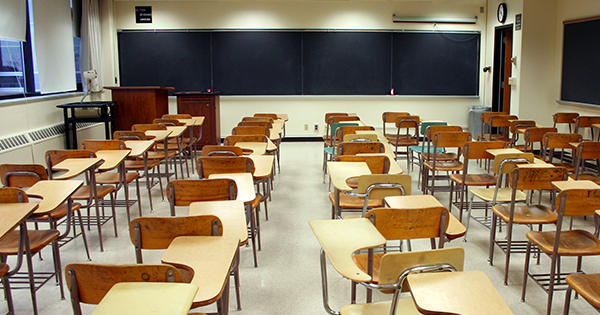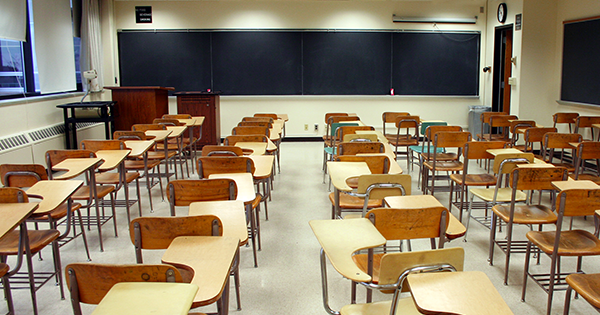 Attacks like the one at a New Jersey High School where a student is caught on video slamming the teacher into the ground because the teacher had taken away to students cell phone, seem to be more pronounced in the media now. Violence against teachers seems to be an under-reported and under- studied issues facing America’s teachers today. It is one of the most overlooked versions of school violence between teacher and student, particular where students incite violence against teachers. According to the American Psychological Association (APA), the U.S. Department of Education reports;
Attacks like the one at a New Jersey High School where a student is caught on video slamming the teacher into the ground because the teacher had taken away to students cell phone, seem to be more pronounced in the media now. Violence against teachers seems to be an under-reported and under- studied issues facing America’s teachers today. It is one of the most overlooked versions of school violence between teacher and student, particular where students incite violence against teachers. According to the American Psychological Association (APA), the U.S. Department of Education reports;
- “Approximately 20% of public school teachers reported being verbally abused,”
- “10% reported being physically threatened,”
- “5% reported being physically attacked in schools.”
The multiple effects include “lost wages and lost days of work (approximately 927,000 days per year),” among others, which severely impacts teachers and the education of students. 80% of teachers that were surveyed reported being victimized according to another recent article by the American Psychological Association, student on teacher violence is not nearly as big of a concern as it should be.
This issue is underreported and poorly studied. According to Dr. Dorothy Espelage of the University of Illinois, the issue does not have as much research and as much attention as it should. “So if you have an area that isn’t being studied thoroughly, it will never come to the attention of the public,” she said. “And that won’t translate into better pre-service training, professional development for teachers, more support from administrators and other measures that can be taken to address the issue.” She continues, “Any comprehensive examination of school violence must include violence directed at teachers. Focusing solely on student victimization to the exclusion of teacher victimization results in an inadequate representation of safety issues, which makes it more difficult to formulate effective solutions.” While violence in schools, including bullying and physical violence of students against students, is widely discussed and researched, the research of student against teacher violence is rarely discussed, until stories about attacks on teachers make headline news, an example being last November when a 16-year-old girl attacked a teacher at Skyline High School in Dallas, Texas while the student was giving a presentation. The vendetta would then be how do we create an impactful policy to create awareness on student against teacher violence, despite the inadequacy of research on this subject?
Currently, the policies for violence against teachers are not clearly outlined. Most, if not all schools in the United States allow for disciplinary action against a misbehaving student, ranging from referral forms to suspensions to the most extreme form expulsion, but not much is done to prevent student against teacher violence, and policies to help students and teachers work through these issues are virtually non-existent. While initiatives have been hypothesized by multiple organizations like the APA, there is currently no federal or state law or mentoring program that allows teachers and students to work together before the situation gets out of hand and turns violent. The only real “solutions” so far are suspension or expulsion, which will only make a bad situation worse by simply putting a band-aid on top of the issue without really addressing it.
The APA published an article titled “Preventing Violence Against Teachers,” and highlighted multiple ways in which school districts and counties could make meaningful changes in the conversation about student against teacher violence, including but not limited to:
- “Skills training that focuses on the 80% of students in a school population who do not have serious behavior problems”
- “Secondary intervention strategies, such as mentoring programs, that target the 5% to 15% of students who are at risk for behavior problems because they are starting to display behavioral or academic problems.”
While many have come forward in recent years to discuss the growing issue of student against teacher violence, not much has been done to pass laws and initiatives that would have a meaningful impact on this issue.
In order to treat the root of the problem that is student against teacher violence before the problem gets out of hand, we should debate and implement a policy that would implement skills training and mentoring programs statewide for students at risk of inciting violence that would not only serve to highlight the issue, but also to pinpoint where these issues are coming from and how we can connect with students to understand their concerns and create valuable solutions that do not include suspension or expulsion. Allowing for some federal or state funds to be set aside for research on this subject will allow for more comprehensive understanding to help both students and teachers in these situations. Attacking the issue straight on and working with students to set goals and create plans of action to end the violent behavior, and allow them to become productive members of society without casting them aside before they were even helped. Students and teachers should have a healthy respect for each other and in order to truly achieve that goal, we must work with these students, not against them.
Take Action: Learn more about how to protect and to prevent violence against teachers HERE.




